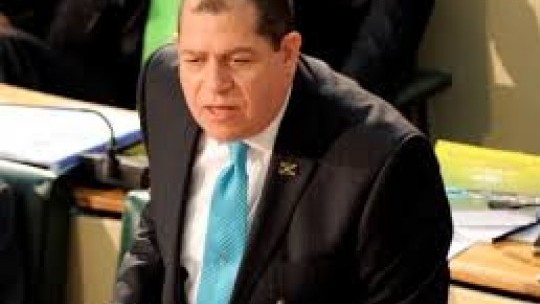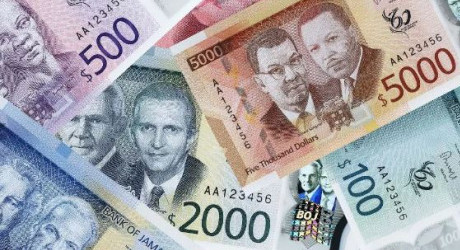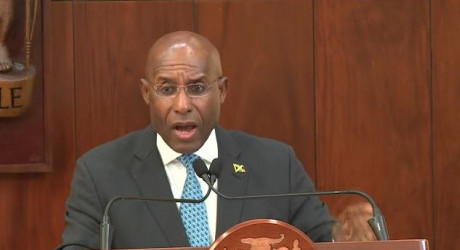Opposition Jamaica Labour Party’s (JLP), spokesman on Finance, Audley Shaw, is calling for the government to fix the exchange rate in the interest of economic stability.
Shaw,in a presentation at the University of the West Indies Mona Campus on Thursday said calls for a competitive exchange rate is nothing more than a euphemism for further devaluation which he points out has brought little gain so far.
“Are we seeing more exports as a result? No, in fact exports are down, not up . That is supposed to be one of the benefits of devaluation. Shouldn’t we then be fighting to maintain a stable or fixed exchange rate because the bigger negative impact is on our debt? It is time for us to start asking where is the positive impact of this continued devaluation of the Jamaican dollar, if all we have are negatives, then I suggest that we need to look at fixing the exchange rate, even for a period of time”
He added that the slide in the dollar is responsible for J$140 billion of the J$300 billion increase in the debt in the last two years.
And in backing his calls for a fixed exchange rate, Shaw enlisted the help of studies which show the impact of a flexible exchange rate on economic activity.
“Most of these studies find that depreciation tend to be contractionary when foreign currency debt is high. The studies also find that the presence of high foreign policy debt can even cause the flexible exchange rate regime to be more destabilizing than when the exchange rate is pegged,” Shaw said.
In response, Dr. Damien King, , Head of the Department of Economics at the UWI, has given a swift thumbs down to the latest call for the government to fix the exchange rate.
“But worse than being futile, to the extent that you are actually able to hold it, you are creating a great imbalance between the cost of imports and the cost of domestic production, ,because you a re subsidizing imports with domestic production so you are really undermining any capacity for you local economy to continue operating when you are making imports cheaper and cheaper.”
He added that while stabilising the exchange rate is an important goal, it must happen through balancing the budget and having a conservative monetary policy, not legislation.
According to King, unless that is done, the country will get itself into problems by trying to stabilize the currency any other way.
Meanwhile, Mr Shaw has raised questions regarding the government's projections for growth over the duration of the IMF programme.The government forecasts growth between 0 point 8 percent and 2 point 2 percent.
Shaw says this is not impressive because those have been normal growth rates in the last 19 years without an IMF programme.
“From when we said ta-ta to the IMP, these are the modest low averages that we have been having. if the government believes in the power of the IMF growth,why are these GDP growth expectations so modest? what is the purpose of all this sacrifice under the IMF programme when at the end of the day we only get growth that the economy would normally have anyway? Shaw said.






.jpg)



 All feeds
All feeds







